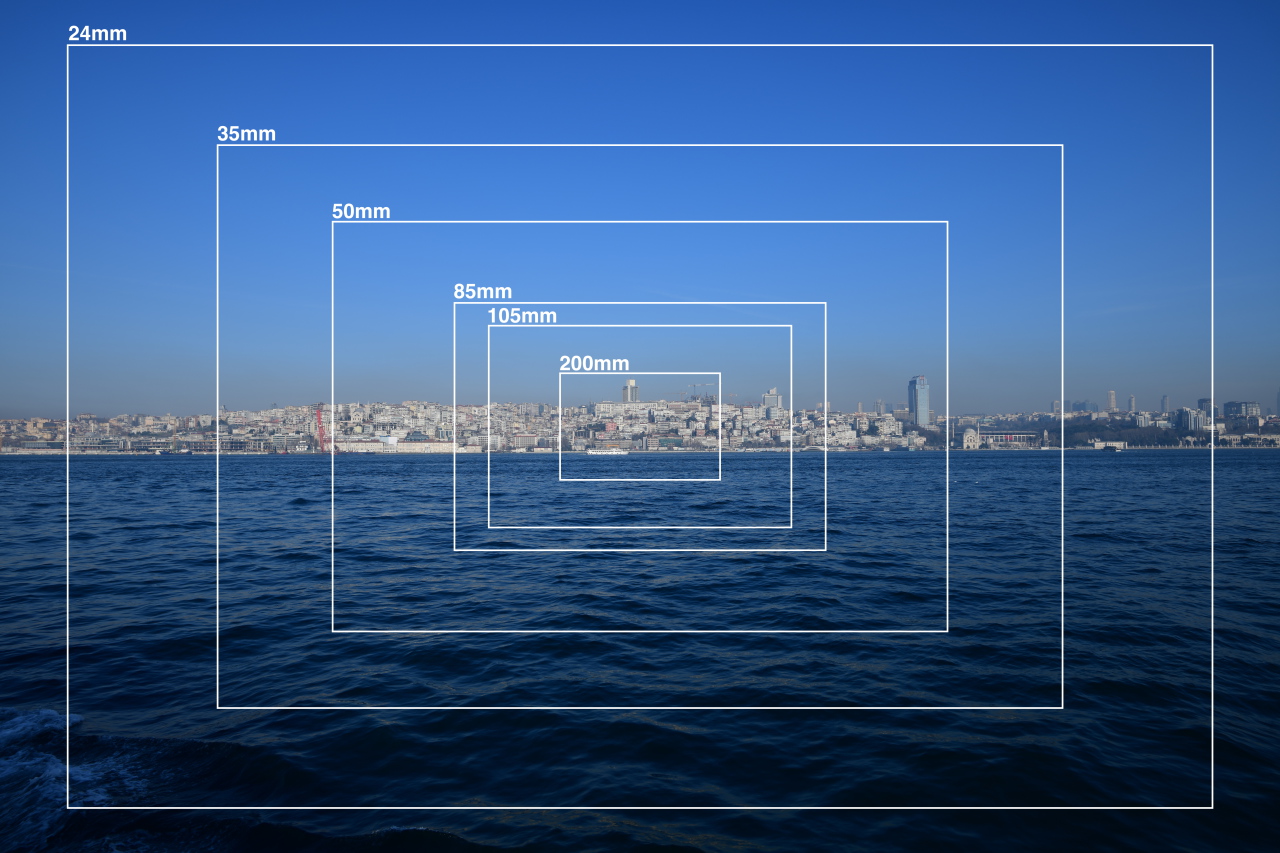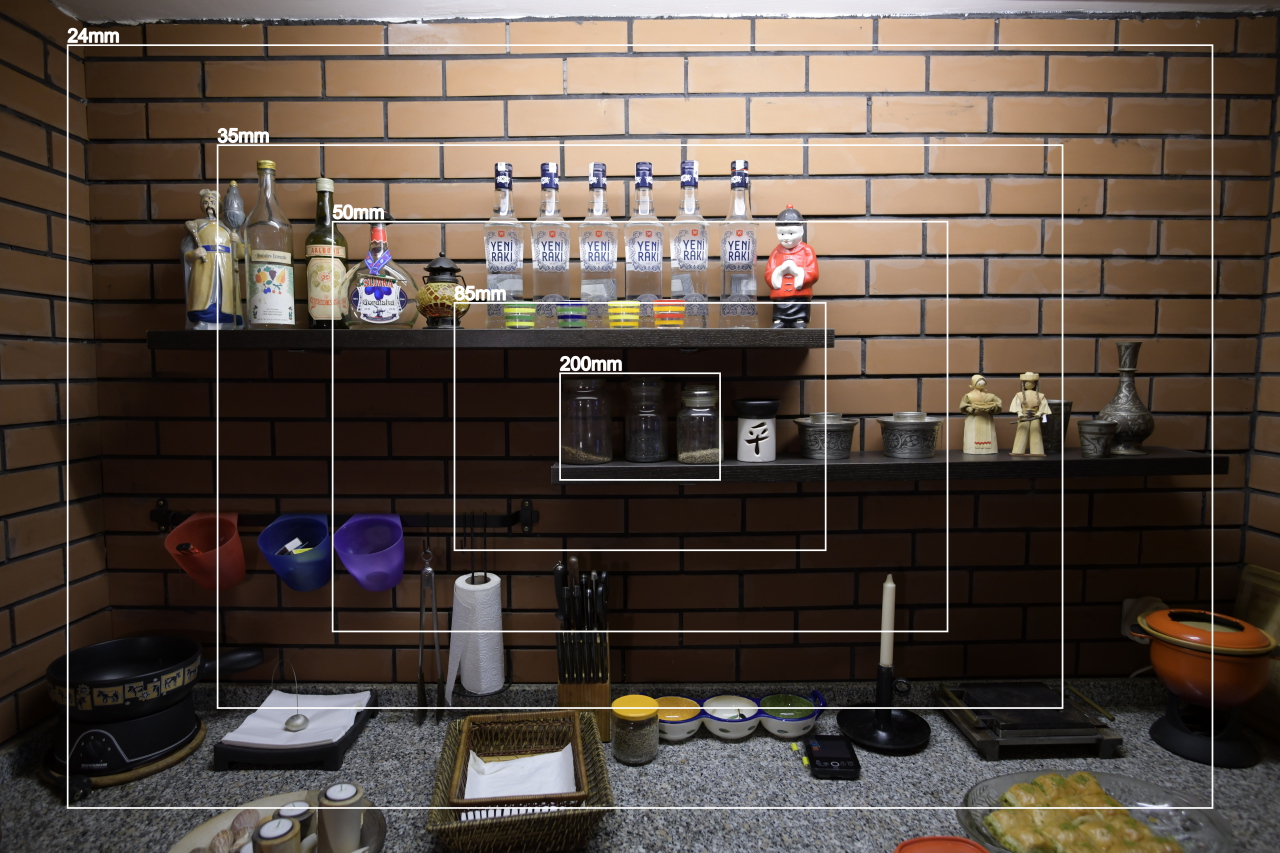Field of view: Difference between revisions
(Created page with "{{photonavbar}} <div class="flex-row row"> <div class="col-xs-12 col-md-8 col-lg-8"> class=img-responsive class=img-responsive </div> <...") |
No edit summary |
||
| Line 17: | Line 17: | ||
The field of view is how much your lens sees. This is actually directly related to the [[focal length]], but for some reason, it has become more common to use the [[focal length]] when actually what matters to a photographer is how the picture is framed. You get used to thinking about how many mm of [[focal length]] will give you what type of a picture. | The field of view is how much your lens sees. This is actually directly related to the [[focal length]], but for some reason, it has become more common to use the [[focal length]] when actually what matters to a photographer is how the picture is framed. You get used to thinking about how many mm of [[focal length]] will give you what type of a picture. | ||
As an example see the picture of Bosphorus in Istanbul Turkey on this page, this is with a [[Nikon 20]] an extremely [[wide angle]] [[lens]], and shows you the field of view for different [[focal lengths]]. It is also a very good example showing how not to use a [[wide angle]] lens. Most of the picture is the sea and the sky. | As an example see the picture of Bosphorus in Istanbul Turkey on this page, this is with a [[Nikon 20]] an extremely [[wide angle]] [[lens]], and shows you the field of view for different [[focal lengths]]. It is also a very good example showing how not to use a [[wide angle]] lens. Most of the picture is the sea and the sky. | ||
The second picture is to show that it is not about distance, just about how much of the view will be captured by the camera. The distance only plays a role when the the subject is closer than the [[minimum focus distance]]. In this case I was about 1.5m away from the wall, so a [[Nikon 200-500]] at 200mm would not be able to focus to the three jars (it would be too close, [[minimum focus distance]] for that lens is about 2.2m), but a [[Nikon 200]] [[macro]] would have no issues. | |||
<table class="table table-striped"> | <table class="table table-striped"> | ||
Latest revision as of 13:03, 20 December 2020
The field of view is how much your lens sees. This is actually directly related to the focal length, but for some reason, it has become more common to use the focal length when actually what matters to a photographer is how the picture is framed. You get used to thinking about how many mm of focal length will give you what type of a picture.
As an example see the picture of Bosphorus in Istanbul Turkey on this page, this is with a Nikon 20 an extremely wide angle lens, and shows you the field of view for different focal lengths. It is also a very good example showing how not to use a wide angle lens. Most of the picture is the sea and the sky.
The second picture is to show that it is not about distance, just about how much of the view will be captured by the camera. The distance only plays a role when the the subject is closer than the minimum focus distance. In this case I was about 1.5m away from the wall, so a Nikon 200-500 at 200mm would not be able to focus to the three jars (it would be too close, minimum focus distance for that lens is about 2.2m), but a Nikon 200 macro would have no issues.
.| Full frame focal length | Field of View | Comment |
|---|---|---|
| 20mm | 82° | very wide angle |
| 35mm | 54° | standard lens |
| 50mm | 40° | 35mm on an APS-C |
| 100mm | 19° | long |
| 200mm | 10° | very long |
| 500mm | 4° | way too long |
These pages are for Amateur Photographers and not really for seasoned photographers and professionals. I have no affiliation or commercial interest with any brand/make. I write from my own experience. I ended up using mainly Nikon, so I am more familiar with this brand than others. See price for notes on pricing as well as photography related links.

